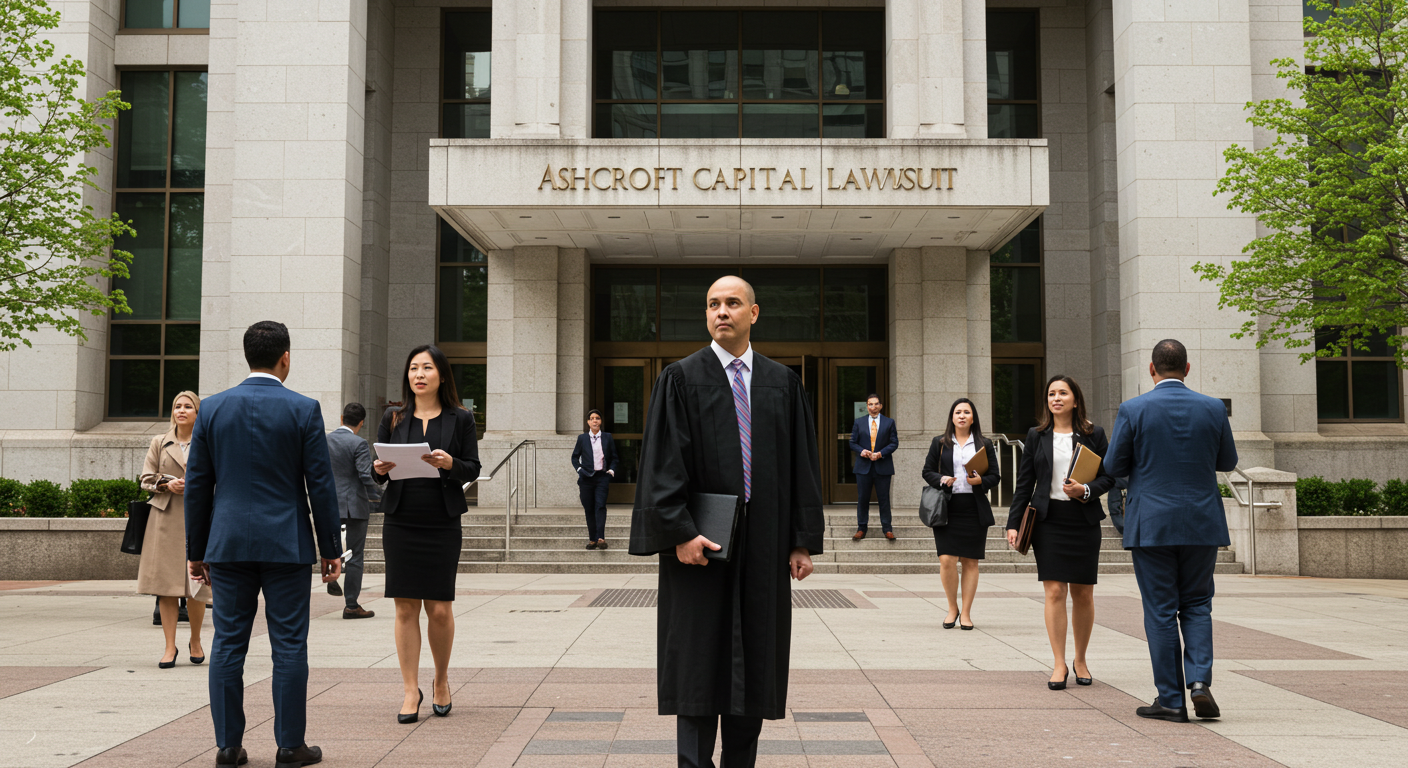Introduction to Ashcroft Capital Lawsuit
In the complex world of real estate investing, few names have drawn as much attention in recent years as Ashcroft Capital. Co-founded by Joe Fairless and Frank Roessler, Ashcroft Capital quickly rose to prominence by offering multifamily investment opportunities to individual investors across the United States. However, with its meteoric rise came increased scrutiny—and eventually, legal troubles. The Ashcroft Capital lawsuit has stirred significant interest, raising important questions about investor trust, real estate syndications, and the evolving legal landscape surrounding private real estate investments.
The Rise of Ashcroft Capital
Ashcroft Capital was founded in 2015 with a mission to provide lucrative multifamily real estate investment opportunities for passive investors. By focusing on value-add apartment properties primarily in growing markets like Texas, Florida, and Georgia, Ashcroft attracted significant capital from individual investors seeking strong returns without the hassles of direct property ownership.
One of Ashcroft’s key strategies was its aggressive marketing and educational outreach. Co-founder Joe Fairless, who also hosts one of the largest real estate investing podcasts, “Best Real Estate Investing Advice Ever,” positioned the firm as transparent, investor-centric, and focused on building community wealth. Ashcroft Capital successfully raised hundreds of millions of dollars over the years, acquiring thousands of units and expanding its reputation as a trustworthy firm in the syndication space.
However, behind this success story, challenges were mounting.
The Spark That Ignited the Lawsuit
The Ashcroft Capital lawsuit primarily centers around allegations of misrepresentation, breach of fiduciary duty, and financial impropriety related to several of its real estate syndications.
According to court documents and complaints filed by a group of disgruntled investors, Ashcroft Capital allegedly:
- Misrepresented projected returns and property performance.
- Failed to adequately disclose risks associated with certain acquisitions.
- Improperly handled investor funds, including commingling assets from different projects.
- Engaged in self-dealing by awarding excessive management fees to affiliated entities.
- Failed to timely distribute financial reports and updates to investors.
The plaintiffs claim that Ashcroft Capital’s marketing materials painted an overly optimistic picture of the risk-reward profile of its investments, and that the firm did not act in the best interests of its investors once projects encountered financial difficulties, particularly during and after the economic turbulence caused by the COVID-19 pandemic.
While Ashcroft Capital Lawsuit has publicly denied any wrongdoing, asserting that they have always acted in good faith and within the bounds of their contractual obligations, the lawsuit has nevertheless cast a shadow over their operations.
Key Issues Highlighted by the Case

The Ashcroft Capital lawsuit brings to light several critical issues in the private real estate investment world:
1. Investor Disclosure and Transparency
Private real estate syndications are subject to less regulatory oversight compared to publicly traded real estate investment trusts (REITs). This makes thorough disclosure and transparent communication absolutely vital. Investors claim that Ashcroft Capital Lawsuit provided incomplete or misleading information, which led them to invest based on inaccurate assumptions.
This case underlines the importance of sponsors being completely forthcoming about risks, property conditions, market factors, and projected returns.
2. Fiduciary Responsibility
When investors entrust their money to a syndicator or fund manager, they expect a fiduciary standard of care: the sponsor should act in the investors’ best interests. Allegations of self-dealing and improper fund management suggest a failure to uphold this critical responsibility.
Regardless of the eventual court ruling, the lawsuit serves as a wake-up call to investors to closely scrutinize not just returns, but also the character and reputation of the people managing their money.
3. Impact of Macroeconomic Shifts
The lawsuit also highlights how economic downturns can expose weaknesses in business models that once seemed foolproof. Many real estate sponsors, Ashcroft included, faced unexpected challenges when rental growth slowed, interest rates rose, and property valuations stagnated or declined after 2020.
While these external factors were largely out of any sponsor’s control, the way firms handled adversity—whether they communicated openly, adjusted strategies, or protected investor interests—differentiated trustworthy operators from those less committed to their investors.
Ashcroft Capital’s Response
Ashcroft Capital Lawsuit has moved swiftly to counter the allegations. In public statements, the company has emphasized:
- Their consistent history of delivering strong returns across numerous deals.
- That a few underperforming assets do not reflect systemic fraud or negligence.
- That they fully disclosed risks associated with all investments.
- That all fees and management decisions were in line with investor agreements and market standards.
The firm has indicated that it plans to vigorously defend itself in court and has reassured current investors that operations remain stable and ongoing projects are moving forward as planned.
Nevertheless, even if Ashcroft Capital ultimately prevails in court, reputational damage may already have been done.
Implications for the Real Estate Syndication Industry
The Ashcroft Capital lawsuit could have ripple effects across the real estate syndication industry. Potential consequences include:
- Increased scrutiny and due diligence by investors before committing capital to private offerings.
- More regulatory oversight, as state and federal agencies seek to protect small investors from potential abuses.
- Greater demand for transparency, with investors requiring more frequent, detailed financial reporting.
- Stronger contractual protections for investors within private placement memorandums and operating agreements.
Syndicators may find it necessary to improve communication, disclose more potential risks, and better align their incentives with those of investors to maintain trust in a more cautious market.
What Investors Can Learn
Whether or not Ashcroft Capital Lawsuit is found liable for the alleged misconduct, investors can draw several lessons from this situation:
- Conduct Thorough Due Diligence: Beyond glossy brochures and polished webinars, investors should investigate sponsors’ track records, backgrounds, and reputations.
- Read the Fine Print: Legal documents like Private Placement Memorandums (PPMs) and operating agreements spell out sponsor rights and investor protections. Read them carefully—or hire a lawyer to help.
- Diversify: No matter how good an opportunity sounds, never put too much capital into one deal, one sponsor, or one asset class.
- Ask Tough Questions: Don’t be afraid to probe potential sponsors about worst-case scenarios, contingency plans, and conflicts of interest.
- Stay Involved: Passive investors still have a responsibility to monitor communications, ask for regular updates, and participate in decision-making when allowed.
Conclusion
The Ashcroft Capital lawsuit underscores both the opportunities and the risks inherent in private real estate investing. While syndications offer the chance for outsized returns and portfolio diversification, they also expose investors to management risks that are less visible in more regulated investment vehicles.
Ultimately, the fallout from the lawsuit will likely encourage more careful behavior from both sponsors and investors—and may lead to a healthier, more transparent real estate investment environment in the long run. Ashcroft Capital’s fate remains uncertain as the legal proceedings continue, but the lessons from this high-profile case are already shaping the future of the industry.
You Many Also Read: Simpcitu


